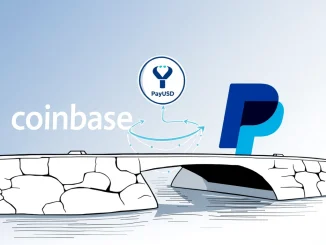
Exciting news for institutional investors in the crypto space! Imagine a world where you can leverage your crypto holdings and tokenized assets to secure traditional financial positions without having to sell them. Well, that future is rapidly becoming a reality thanks to a groundbreaking pilot program launched by crypto exchange giant OKX and banking heavyweight Standard Chartered. Let’s dive into how this innovative partnership is set to transform institutional crypto finance using crypto collateral.
What is Off-Exchange Collateral and Why Does it Matter?
In traditional finance, collateral is essential. It’s the security pledged for a loan or other financial transaction, reducing risk for lenders. However, when it comes to crypto, institutions often face challenges in using their digital assets as collateral in traditional markets. This is where off-exchange collateral comes into play.
Off-exchange collateral allows institutions to use their assets as collateral without having to move them from their preferred custody solutions to the exchange itself. This is crucial for several reasons:
- Enhanced Capital Efficiency: Institutions can unlock the value of their crypto holdings without selling them, freeing up capital for other investments.
- Reduced Counterparty Risk: By keeping collateral off-exchange, institutions mitigate risks associated with exchange failures or hacks.
- Regulatory Compliance: Operating under frameworks like Dubai’s VARA ensures compliance and builds trust within the institutional space.
This pilot program by OKX and Standard Chartered directly addresses these needs, paving the way for wider institutional adoption of crypto.
OKX, Standard Chartered, and Tokenized MMFs: A Powerful Alliance
This isn’t just another crypto announcement; it’s a strategic alliance of industry leaders aiming to bridge the gap between traditional finance and the burgeoning world of digital assets. Let’s break down the key players and their roles:
- OKX Exchange: A leading cryptocurrency exchange, OKX is providing the platform and technological infrastructure for this pilot. Their involvement signals a commitment to innovating within regulatory frameworks and expanding institutional crypto offerings.
- Standard Chartered: A globally recognized bank with a strong presence in regulated markets, Standard Chartered brings credibility and trust to the initiative. They will act as the regulated custodian, ensuring the security and compliance of the collateral.
- Franklin Templeton: A renowned asset manager, Franklin Templeton is providing the first tokenized MMFs (Money Market Funds) for use as collateral. This is a significant step as it introduces traditional, regulated investment products into the crypto collateral equation.
- Brevan Howard: A leading alternative investment management firm, Brevan Howard’s participation highlights the institutional demand and interest in such innovative solutions.
The collaboration of these entities underscores the seriousness and potential impact of this pilot program.
Tokenized MMFs: The Next Frontier in Crypto Collateral?
Tokenized Money Market Funds (MMFs) are a fascinating aspect of this pilot. But what exactly are they, and why are they important?
Traditional Money Market Funds are low-risk investment vehicles that invest in short-term debt securities. Tokenizing them means representing ownership of these funds as digital tokens on a blockchain. This brings several advantages:
- Increased Accessibility: Tokenization can make MMFs more accessible to a wider range of investors, including those in the crypto space.
- Enhanced Efficiency: Blockchain technology can streamline the processes associated with MMFs, potentially reducing costs and increasing efficiency.
- Seamless Integration with Crypto: Tokenized MMFs can be seamlessly integrated into crypto-native platforms and used in decentralized finance (DeFi) applications.
By including tokenized MMFs as collateral options, this pilot program is exploring the cutting edge of financial innovation, potentially paving the way for a new era of asset utilization.
Benefits of Using Crypto and Tokenized MMFs as Off-Exchange Collateral
What are the concrete advantages for institutions that choose to participate in such a system? Let’s break down the key benefits:
| Benefit | Description |
|---|---|
| Improved Capital Efficiency | Institutions can utilize their existing crypto and tokenized MMF holdings to secure positions without liquidating them, maximizing capital deployment. |
| Reduced Counterparty Risk | Keeping collateral off-exchange minimizes exposure to risks associated with exchange operations and potential vulnerabilities. |
| Diversification of Collateral Options | The pilot expands the range of assets that can be used as collateral, offering greater flexibility and potentially better terms. |
| Streamlined Operations | Collateral mirroring features aim to simplify and automate collateral management, reducing operational overhead. |
| Regulatory Compliant Innovation | Operating under Dubai’s VARA framework ensures the pilot adheres to regulatory standards, fostering trust and paving the way for broader adoption. |
These benefits collectively paint a picture of a more efficient, secure, and versatile institutional crypto finance landscape.
Challenges and Considerations
While the pilot program is undoubtedly exciting, it’s important to acknowledge potential challenges and considerations:
- Regulatory Landscape: The regulatory environment for crypto and tokenized MMFs is still evolving globally. Clarity and consistency in regulations are crucial for wider adoption.
- Market Volatility: Crypto markets are known for their volatility. Managing risk associated with fluctuating crypto collateral values will be paramount.
- Adoption Hurdles: Institutional adoption of new technologies and financial instruments takes time. Education, trust-building, and proven success are necessary to overcome adoption hurdles.
- Technical Complexity: Implementing and managing off-exchange collateral solutions requires sophisticated technology and expertise. Ensuring seamless integration and robust security is vital.
Addressing these challenges proactively will be key to the long-term success of this and similar initiatives.
Dubai’s VARA Framework: A Hub for Crypto Innovation
The fact that this pilot is launched under Dubai’s Virtual Asset Regulatory Authority (VARA) framework is noteworthy. VARA has positioned Dubai as a forward-thinking jurisdiction for crypto innovation. This framework provides a structured and regulated environment for crypto businesses to operate, fostering innovation while prioritizing investor protection.
Dubai’s proactive approach to crypto regulation makes it an attractive location for companies like OKX and Standard Chartered to test and deploy cutting-edge solutions like off-exchange collateral using crypto and tokenized MMFs. This pilot could serve as a blueprint for other jurisdictions looking to embrace crypto innovation responsibly.
Actionable Insights for Institutional Investors
For institutional investors exploring the crypto space, this pilot program offers valuable insights:
- Explore Off-Exchange Collateral Solutions: Investigate platforms and solutions that enable the use of crypto collateral without moving assets to exchanges.
- Consider Tokenized MMFs: Evaluate the potential of tokenized MMFs as a bridge between traditional and crypto finance, both as collateral and investment options.
- Stay Informed on Regulatory Developments: Keep abreast of evolving crypto regulations, particularly in jurisdictions like Dubai that are leading the way in creating supportive frameworks.
- Engage with Regulated Custodians: Partner with regulated custodians like Standard Chartered to ensure the security and compliance of your digital asset holdings.
By taking these steps, institutions can position themselves to benefit from the growing convergence of traditional and crypto finance.
Conclusion: A Bold Step Towards Institutional Crypto Finance
The pilot program by OKX and Standard Chartered, with the participation of Franklin Templeton and Brevan Howard, represents a revolutionary step forward for institutional crypto finance. By enabling the use of crypto collateral and tokenized MMFs in an off-exchange setting, this initiative addresses key challenges around capital efficiency, counterparty risk, and regulatory compliance.
As the crypto landscape matures, innovations like this are crucial for unlocking the full potential of digital assets within the traditional financial system. This pilot is not just about technology; it’s about building bridges, fostering trust, and shaping the future of finance. Keep an eye on this space – the evolution of crypto collateral and tokenized MMFs is just beginning, and it promises to be transformative.




Be the first to comment